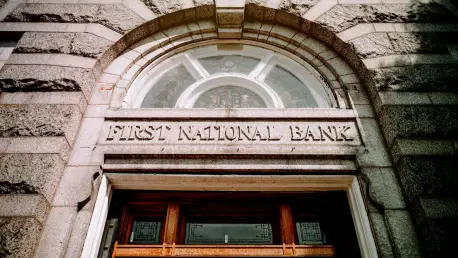The ongoing debate over accountability and transparency within the U.S. central bank has reached a pivotal moment as concerns mount about the Federal Reserve’s oversight practices. A bipartisan legislative proposal, spearheaded by Senators Elizabeth Warren and Rick Scott, seeks to transform the governance structure of both the Federal Reserve and the Consumer Financial Protection Bureau by introducing an independent inspector general. This step, according to the senators, is essential to combating corruption and regulatory failures that have troubled the central bank and safeguarding against ethical breaches. The prospect of having an inspector general appointed by the president and confirmed by the Senate is designed to ensure independence from Fed officials and thus reduce conflicts of interest that have plagued the institution in recent years.
Independent Inspector General Appointment: A Mechanism for Enhanced Oversight
One of the key aspects of the proposed legislation is the process by which the inspector general would be appointed. Currently, the inspector general’s role is overseen by Federal Reserve officials, raising concerns about potential conflicts of interest and inadequate supervision. The proposal argues for a significant change, advocating for presidential appointment followed by Senate confirmation. This aligns with practices at major federal agencies where independence is crucial for ensuring unbiased investigations and regulatory compliance. The senators emphasize that the measure would empower the inspector general with greater autonomy, allowing for unhindered scrutiny of Fed activities and enhancing transparency.
This argument gains urgency when considering recent controversies surrounding the Federal Reserve, where officials have been accused of engaging in individual stock trades during the COVID-19 pandemic. Such actions prompted the establishment of new rules aimed at curbing this behavior, yet critics insist these were reactive measures rather than proactive oversight. Having an appointed and confirmed inspector general would symbolize a shift toward a more institutionalized form of accountability, preventing personal interests from dictating regulatory outcomes. By mirroring processes used in other federal bodies, this approach could usher in a new era of rigorous scrutiny and diminish opportunities for ethical breaches.
Rationale Behind Warren and Scott’s Proposal: Battling Corruption and Regulatory Failures
Driving the initiative are several allegations against the now-retired inspector general, Mark Bialek, who served for nearly a decade and a half. Senators Warren and Scott have been vocal critics of Bialek, accusing him of neglecting matters of corruption that have surfaced in connection to the central bank. Furthermore, they draw attention to his perceived failures in addressing ethical concerns and regulatory lapses witnessed during pivotal banking collapses. Such criticisms underscore the need for an inspector general who operates outside the influence of current Federal Reserve officials, thus maintaining impartial enforcement of rules.
This call for reform is underscored by repeated failures in enforcing ethical standards and transparency. The senators point to the need for accountability in the wake of regional bank collapses, which signify deeper regulatory shortcomings. Despite Bialek’s broad experience across various government agencies, his tenure has come under scrutiny, prompting the push for independent oversight. By solidifying the inspector general’s autonomy, the senators believe that the Fed can be steered toward a path that prioritizes the safeguarding of public interests, preventing mismanagement that may arise from blurred lines of authority. This legislative effort represents a broader consensus within the political sphere on the necessity for transparency, aiming to fortify the central bank against future vulnerabilities.
Path to Accountability: The Federal Reserve’s Response and Implications for the Future
A critical element in the proposed legislation is the process for appointing the inspector general, as current oversight by Federal Reserve officials raises worries about conflicts of interest and insufficient supervision. The proposal advocates for a shift, suggesting the president appoint the inspector general, with Senate approval, similar to major federal agencies where independence is necessary for fair investigations and regulatory adherence. Senators highlight that this approach would grant the inspector general increased freedom, ensuring thorough examination of Federal Reserve activities, thus enhancing transparency. This proposal gains importance against the backdrop of recent Federal Reserve controversies, including allegations of officials engaging in individual stock trades during the COVID-19 crisis, leading to new rules intended to deter such actions. Critics argue these rules were mere reactions, not proactive oversight. With a Senate-confirmed inspector general, it represents a move toward institutionalized accountability, reducing chances of personal interests affecting regulatory decisions. Emulating other federal practices could foster stronger scrutiny and lessen ethical lapses.









